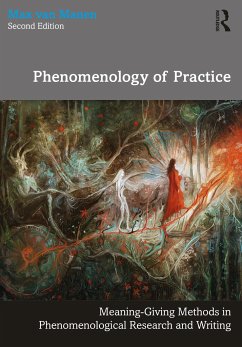
Fundamentals of Qualitative Research
A Practical Guide
Versandkostenfrei!
Versandfertig in 6-10 Tagen
46,99 €
inkl. MwSt.
Weitere Ausgaben:

PAYBACK Punkte
23 °P sammeln!
This book is the road map to proficiency and development in the field of qualitative research. Borrowing from a wealth of experience teaching introductory qualitative research courses, author Kakali Bhattacharya lays out a dynamic program for learning different paradigms of inquiry, empowering students to recognize the convergence of popular research methodologies as well as the nuances and complexities that set each of them apart. Her book:supplements the readings and activities in a qualitative methods class, exposing students to the research process and the dominant types of qualitative res...
This book is the road map to proficiency and development in the field of qualitative research. Borrowing from a wealth of experience teaching introductory qualitative research courses, author Kakali Bhattacharya lays out a dynamic program for learning different paradigms of inquiry, empowering students to recognize the convergence of popular research methodologies as well as the nuances and complexities that set each of them apart. Her book:
supplements the readings and activities in a qualitative methods class, exposing students to the research process and the dominant types of qualitative research;introduces a variety of theoretical perspectives in qualitative research, including positivism and postpositivism, interpretivism, feminism, symbolic interactionism, phenomenology, hermeneutics, critical theory, and Critical Race Theory;identifies and summarizes the three dominant methodological approaches in qualitative research: narrative inquiry, grounded theory, and ethnography;provides interactive activities and exercises to help students crystallize their understanding of the different topics in each chapter.
supplements the readings and activities in a qualitative methods class, exposing students to the research process and the dominant types of qualitative research;introduces a variety of theoretical perspectives in qualitative research, including positivism and postpositivism, interpretivism, feminism, symbolic interactionism, phenomenology, hermeneutics, critical theory, and Critical Race Theory;identifies and summarizes the three dominant methodological approaches in qualitative research: narrative inquiry, grounded theory, and ethnography;provides interactive activities and exercises to help students crystallize their understanding of the different topics in each chapter.














